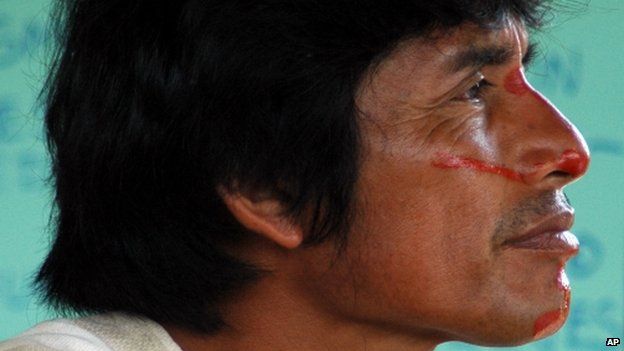Peru creates new anti-logging commission after murders
- Published

The Peruvian government says it will investigate illegal logging along the Peru-Brazil border following the murder of four indigenous leaders.
The leaders were killed in early September, allegedly by loggers.
The Peruvian President of the Council of Ministers, Ana Jara Velasquez, announced a commission which she said would have powers to stop the logging.
She said police had so far arrested one person suspected of involvement in the killings.
The four tribal leaders, including outspoken anti-logging activist Edwin Chota, had been killed on their way to a meeting to discuss ways to stop illegal logging.
The men from the Ashaninka community were attempting to travel to Brazil when they were murdered,
Under threat
Campaigners say the men had received several death threats from illegal loggers.
Correspondents say indigenous people have felt under increasing threat from deforestation in recent years.
Ana Jara Velasquez said the new commission would also address the issue of land ownership and titles in the area.
The Peruvian newspaper El Comercio said Mr Chota had requested earlier this year, and been refused, any rights of protection over his ancestral lands.
The newspaper quoted the local forestry commission in Mr Chota's region of Ucayali as saying that the Peruvian government had divided the land and allocated it as logging concessions to two companies in 2002.
A 2012 World Bank report estimated that 80% of Peruvian timber export stemmed from illegal logging.
- Published4 September 2014
- Published29 August 2014